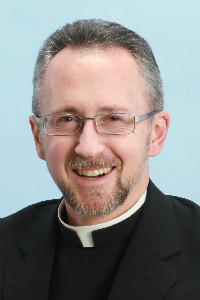
In the last issue, we introduced the topic of moral conscience, tried to dispel some unfortunate misconceptions, and then explored the Catechism’s definition of conscience.
We continue now with an apparent contradiction. On the one hand we have so often been told: “Always follow your conscience.” On the other hand, we know that conscience can err at times: our judgment of conscience might be out of sync with objective and true moral principles. As the Catechism states, “[f]aced with a moral choice, conscience can make either a right judgment in accordance with reason and the divine law or, on the contrary, an erroneous judgment that departs from them (1786).”
Complicating matters further, the moral directive to “follow your conscience” has in recent decades been misinterpreted and even deliberately distorted to mean in essence: “If you disagree with the Church’s moral teaching, it’s OK to do what you want.”
So, the element of truth in the moral principle “follow your conscience” is this: we are morally bound to conform our choices and actions to the voice of conscience when it speaks clearly and with certainty: “Do this; avoid that.” (Similarly, we should refrain from choosing and acting when our conscience is doubtful; we should first work to eliminate the doubt and obtain moral clarity).
But, the upshot of “follow your conscience” is a more basic moral requirement, namely, to form our conscience rightly.
Conscience formation begins with the deep-seated decision to seek moral truth: we form the habit of seeking right answers to moral questions and persevering until we find them.
Catholics, and all people of good will, find a guide to those right answers in the moral teaching of the Catholic Church. The Church—having been promised by her Divine Spouse that his Holy Spirit would guide her “into all truth” (Jn. 16:13)—faithfully transmits to the world the splendor of moral truth which the human person discovers in the natural moral law inscribed on our very nature (Rm 2:15) and given completion in the New Law of the Gospel of Jesus Christ.
In their landmark declaration on religious liberty, the Fathers of the Second Vatican Council did not endorse the false notion that conscience is somehow absolutely autonomous (“I think X is right for me, therefore it is right for me”). They affirmed, rather, that “[i]n the formation of their consciences, the Christian faithful ought carefully to attend to the sacred and certain doctrine of the Church. For the Church is, by the will of Christ, the teacher of the truth” (Dignitatis Humanae, 14).
Conscience formation is moreover, as the Catechism reminds us (1784), a life-long task. It is akin to keeping up our backhand in tennis or honing our golf swing: give it up for several months, and we have a lot of ground to recover.
Furthermore, a sound conscience can only be sustained on the firm foundation of integrity, sincerity and forthrightness. Duplicity, personal inconsistency and dishonesty undermine any hope of forming a properly functioning conscience.
Living the Christian moral life to the full entails consulting our conscience on a regular basis: becoming “at home,” we might say, with the voice of conscience. In other words, consulting conscience is not merely to be reserved for those “tough choices” or “conscience situations” (“Should I be fostering a relationship with this woman?” “Should I remain silent about my son’s dissolute lifestyle?” “Should we be open to having more children?”). The vast majority of our choices have a moral dimension—not just the “big choices” or the apparent “moral dilemmas” that we sometimes face. So in all of our daily choices, it should become second nature to consult conscience and allow it to weigh in on the choices we face, directing us—in the here and now of life—to “avoid evil” and to “do good.”
And when we do that habitually and consistently, a strange thing happens: we find ourselves more peaceful, more personally secure and more spontaneously joyful.
So, if the idea of following a well-formed conscience still strikes us as a downer, we might need to re-examine our priorities, to ask whether life is all about pursuing personal contentment (even when our goals conflict with right morals), or whether true happiness consists rather in becoming—with effort, self-denial and, above all, God’s grace—a disciplined, prudent and conscientious person. It may require us to reconsider whether true freedom consists in satisfying each and every one of our preferences and whims, or whether true freedom means interior independence from the shackles of passion, emotion and the ubiquitous cultural pressures to conform to the fads, styles and trends of pop culture.
Finally, let’s not confuse fidelity to conscience with mere rule-following. A personal morality based on conformity with moral rules is what we call legalism. And Jesus does not call us to be legalists. Moral maturity, rather, means internalizing moral principles and norms, making them our own, and adhering to them out of personal conviction, not out of constraint. Such personal moral consistency under the guidance of conscience normally becomes a wellspring of intense personal satisfaction and the joy that is the fruit of the Holy Spirit.
Conscience should not be the wet towel on all our fun. It is, rather, the guiding light to a deeply fulfilling human life, and to everlasting life in the Kingdom that will have no end.
Father Berg is professor of moral theology at St. Joseph’s Seminary, Dunwoodie.